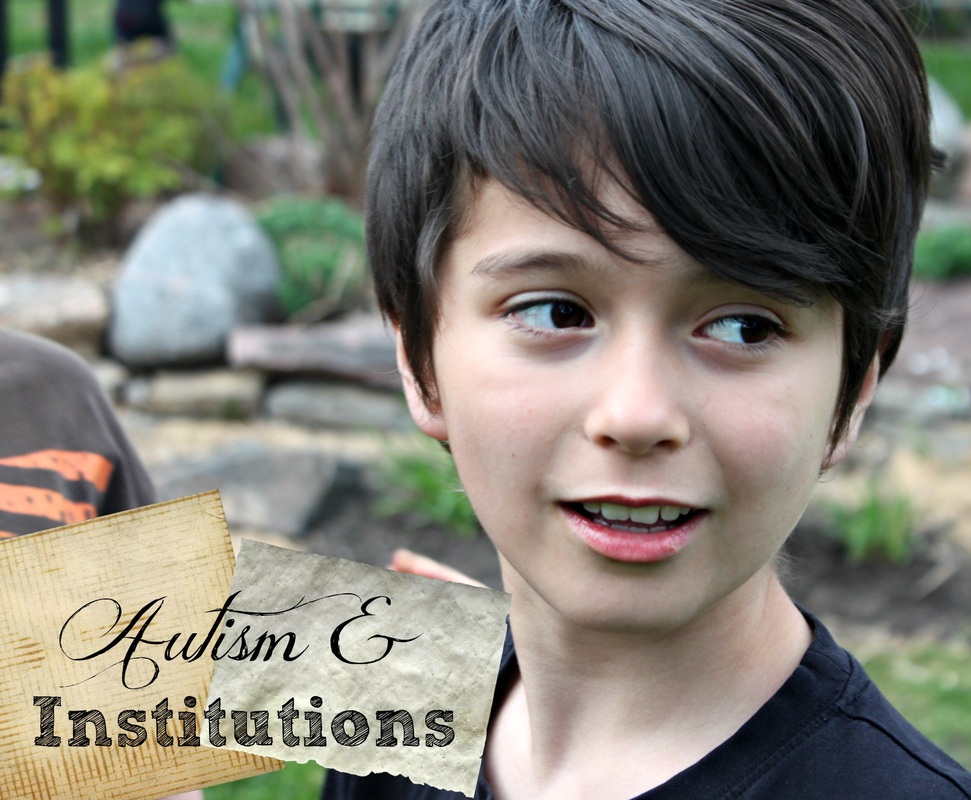|
De-institutionalization, Ontario’s policy of closing residential institutions for people with developmental disabilities and moving them into the community, dates back to the 1970s. The last of those large institutions, Huronia Regional Centre in Orillia, closed in 2009 (The institution opened its doors in 1876 under the name "Orillia Asylum for Idiots"). In the mid 19th century, the first permanent “lunatic asylums” were established in Newfoundland, Prince Edward Island, Nova Scotia, New Brunswick, Quebec and Ontario. By the turn of the 20th century, western Canada had also erected asylums. These institutions reflected a revolutionary form of health care for those considered “insane”. Run by asylum doctors and attendants (later psychiatric nurses), asylums were part of the same reform movement that led to more permanent schooling for children, reorganized prisons for criminals, and reformatories for wayward youth. Institutions were seen as the ‘best’ place for people with intellectual disabilities to be, segregated from society, with others "like them". Reformers and psychiatrists believed that carefully constructed and run lunatic asylums could dramatically increase the cure rates for many forms of madness. The plan was that different types of mental illness would be more carefully classified, a strict daily routine of work, leisure activities and religious observation was established, medication was routinely prescribed, and patients’ progress was carefully recorded. Experts hoped that in removing patients from their home environments where the mental trouble usually began, they would quickly be cured in this carefully controlled asylum environment. Patients, it was hoped, would be cured by slowly reforming their behavior in conformity with the rational principles of asylum care. In some provinces, private asylums were also established to cater to wealthier families. So, why then did Ontario decide to start "de-institutionalize"? In the late 1970s and 1980s, governments in the Western world were being challenged by the disability rights movement to close institutions, large facilities, and psychiatric hospitals. This desire for social change was being fuelled by a human rights revolution and by a growing body of research that was showing that 'institutionalization' had negative impacts on both consumers and staff. Word about what was really happening behind the doors of these "homes" where children and adults with special needs were to be cared for was appalling and unjust. The Ontario government has settled multi-million-dollar class-action lawsuits (read about them here, and here) with several thousand former institution residents who suffered physical, emotional and sexual abuse at the hands of former staff and fellow residents. Group homes were being replaced by institutions, as it was starting to become clear that when the "idiots" are tucked away in an institution where there are many secrets and not much accountability, anything can happen. Being in a smaller home with fewer people, and being allowed to be part of society was what would be best for those with developmental disabilities. So, let's fast-toward to this past Tuesday (May 20th) to a comment made by Toronto Councillor, Doug Ford, about how a Rexdale group home for young adults with autism and other developmental disabilities was damaging property values and "ruining" the neighbourhood. Did you feel he earth shift too with the time travel back to 1876? I know, so weird. It was only 5 years ago that the last institution was closed, and basically, what Doug Ford is saying is that he would like them to come back! Because if these people in the group home are "ruining" the neighbourhood, and "damaging property values", then where would they not do that? Oh, I know, an institution! Wait....isn't this where this all started? His comments were ignorant. As a mom of a child with autism, my sons future is very un-certain. I think he is smart, and bright, and capable, but I can't really know that he can get a job, or live on his own, or care for himself when he is older.
Since the institutions have closed, there has been a big (a BIG!) gap in funding and spaces where families can send their special-needs family members if they are no longer able to care for them, or when care seems impossible, such as with the couple who left their adult son with autism at a government office in Ottawa, or the Ottawa mother in crisis who threatened to abandon her 20-year-old daughter with autism at Queen’s Park in Toronto on Tuesday. It may seem so unkind, and so crazy that parents would do such things to their children, but living with someone with special needs can push you to your limits, and without proper support (from family, friends, school, the community), parents or caregivers can snap. I know we've come a long way, and I pray that when (or if) I need services for Caleb as he gets older, they will be more readily available. I love Caleb with all my heart, and I don't think he is "ruining" our neighbourhood, or "damaging our property value", and I don't want him shipped off to an institution where he is just another person in a sea of "idiot" people. For now, and as long as I am able, his home is with me.
0 Comments
Leave a Reply. |
Hi, I'm Amy-Lyn! I am the lady behind this here blog! I live in the sticks with my animals, my super handsome husband, and my
3 amazing kids! Here you'll find things from recipes (gluten-free, paleo, and strait up junk food!), DIY ideas, thoughts on raising a son with autism, and whatever else pops into my brain! : ) Read more about me by clicking here! Want to Stay Connected?
Find What
|




 RSS Feed
RSS Feed







